Question And Answer
Publications
Articles, publications, books, tools and multimedia features from the U.S. Institute of Peace provide the latest news, analysis, research findings, practitioner guides and reports, all related to the conflict zones and issues that are at the center of the Institute’s work to prevent and reduce violent conflict.
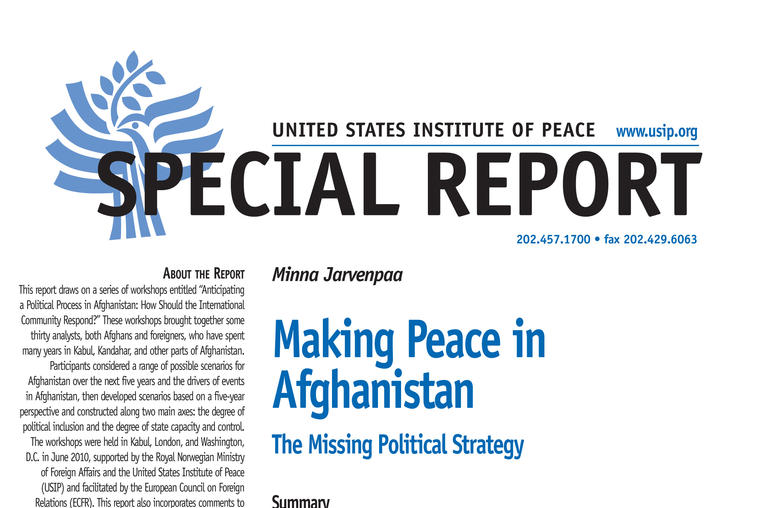
Making Peace in Afghanistan
This report draws on a series of workshops entitled “Anticipating a Political Process in Afghanistan: How Should the International Community Respond?” These workshops brought together some thirty analysts, both Afghans and foreigners, who have spent many years in Kabul, Kandahar, and other parts of Afghanistan. Participants considered a range of possible scenarios for Afghanistan over the next five years and the drivers of events in Afghanistan, then developed scenarios based on a five-year p...
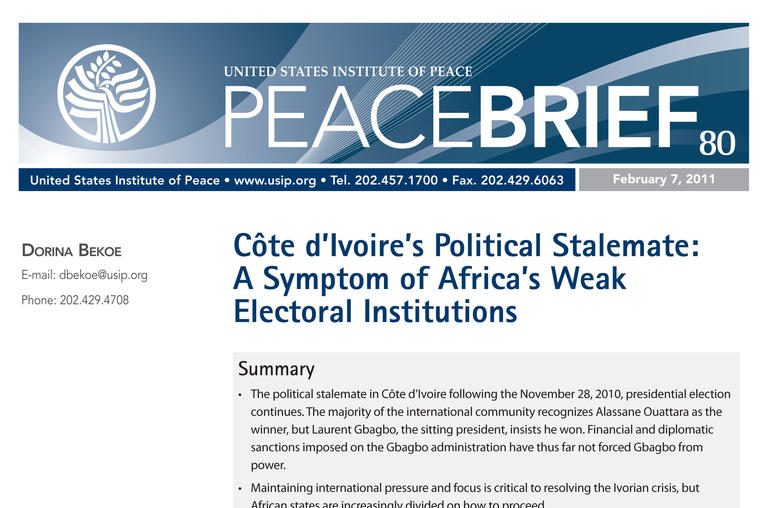
Côte d’Ivoire’s Political Stalemate: A Symptom of Africa’s Weak Electoral Institutions
This Peace Brief examines the political stalemate in Côte d’Ivoire following the November 28, 2010, presidential election and its implications for the future.
USIP Launches New Grantmaking Program: Communication for Peacebuilding
USIP recently issued the first call for proposals under the Communication for Peacebuilding priority grant program. The program will support innovative research and practice designed to increase our understanding of how communication flows and communication technology can best be leveraged to improve the practice of peacebuilding.
Ending with ETA? Elusive Peace in the Basque Country
In January the Basque separatist group ETA (Euskadi Ta Askatasuna), announced a “permanent, general and internationally verifiable ceasefire”. On February 7, leaders of Batasuna, a political party that served as ETA’s surrogate and has been banned since 2003, presented the statutes of a new party in a bid to re-enter the democratic game and pursue the goal of independence by solely political means. With the support of USIP, Teresa Whitfield, of New York University’s Center on International C...
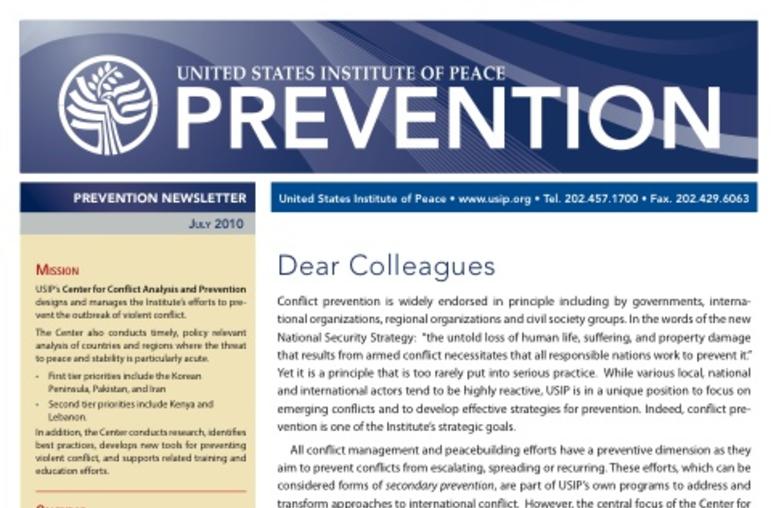
USIP Prevention Newsletter - March 2011
The bimonthly Prevention Newsletter provides highlights of the Institute's conceptual and region specific work aimed at helping to prevent conflicts in Africa, the Middle East, South and Northeast Asia, and the special project on genocide prevention. It also provides Over the Horizon thinking on trends in different regions, as well as information about events, working groups and publications.
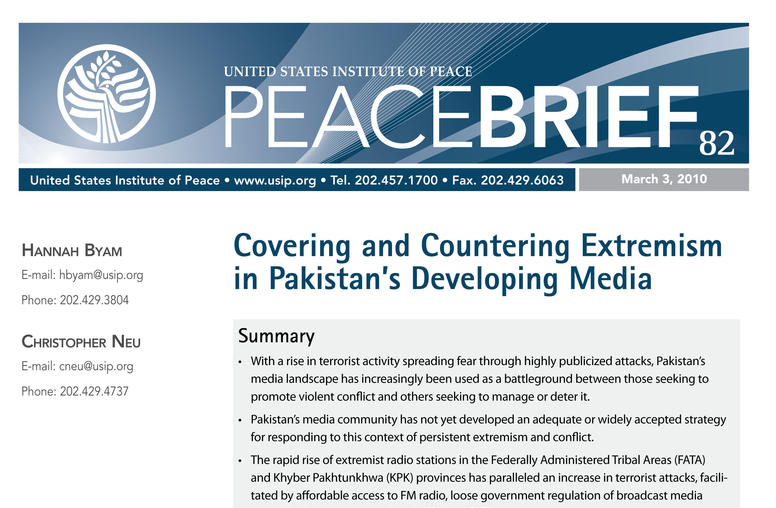
Covering and Countering Extremism in Pakistan’s Developing Media
This Peace Brief summarizes the discussion from the USIP public event “Pakistan’s Media: Dissecting its Coverage of Extremism, Terrorism and Pakistan-U.S. Relations." The event convened Pakistan journalists and media experts Wajahat Ali, Imtiaz Ali and Zahid Hussein on December 6, 2010.
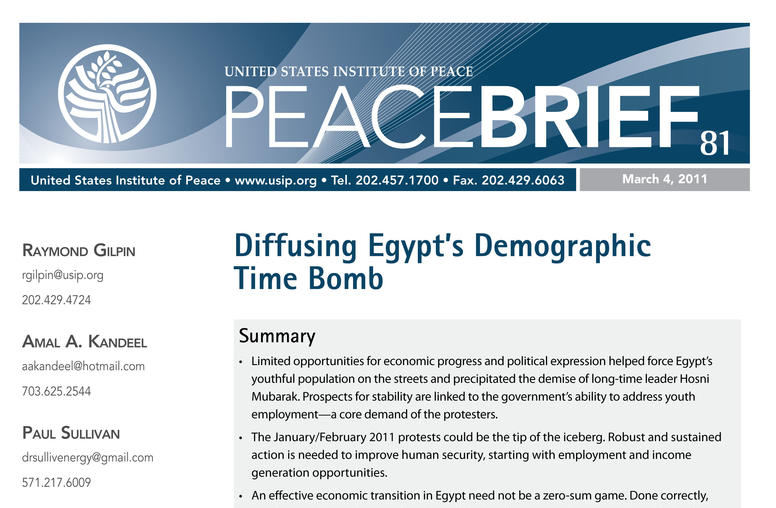
Defusing Egypt’s Demographic Time Bomb
In the wake of the January/February upheavals, USIP convened a working group to examine the multifaceted challenges facing Egypt’s new government and its people. This Peace Brief discusses the groups analysis of the situation.
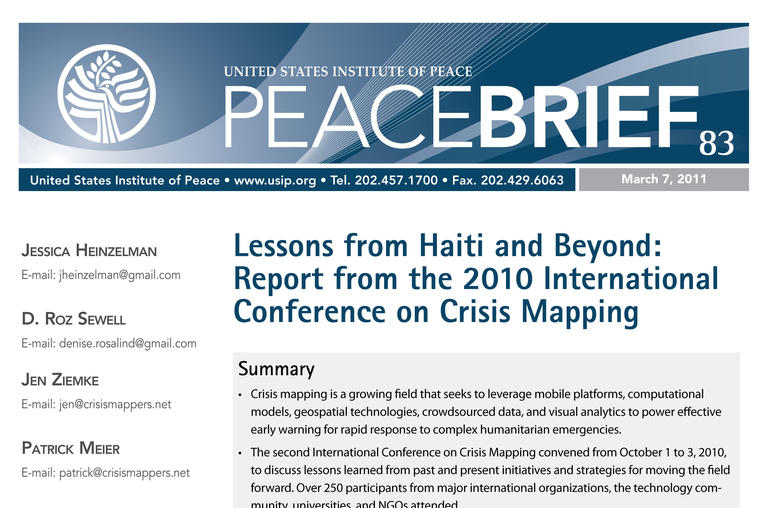
Lessons from Haiti and Beyond: Report from the 2010 International Conference on Crisis Mapping
At the International Conference on Crisis Mapping (ICCM) held from October 1 to 3, 2010, researchers and practitioners in the humanitarian and technology fields presented their current work in crisis mapping. This Peace Brief summarizes the overall lessons learned in the field of crisis mapping as identified through presentations, panel discussions, and community-led break-out sessions in the 2010 conference.
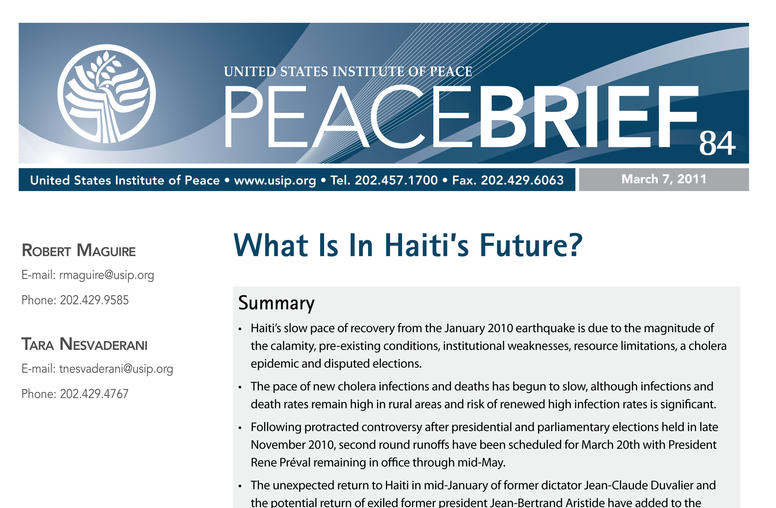
What Is In Haiti’s Future?
This report is based on views expressed during a January 26, 2010 event hosted by the U.S. Institute of Peace’s Haiti Working Group titled “What is in Haiti’s Future?” The event featured presentations by Thomas Adams, the U.S. State Department’s special coordinator for Haiti; Alexandre Abrantes, the World Bank’s special envoy to Haiti; Mark Schneider, senior vice president of the International Crisis Group; and Robert Fatton, University of Virginia’s associate dean for graduate programs.
A Multimedia Online Atlas of War Crimes in Bosnia-Herzegovina
Over the years, the USIP Grant Program has supported a number of noteworthy projects aiming to develop large-scale public archives of primary and secondary information about conflicts in various countries. A particularly impressive documentation effort is being carried out by a nongovernmental organization in Bosnia-Herzegovina, the Research and Documentation Center (RDC), whose work has been supported by two USIP grants, one of which commenced in May 2010 and remains ongoing.